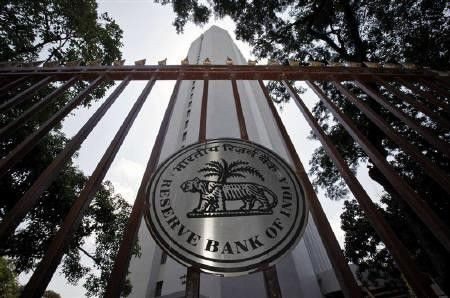RBI Chief Hiked Repo Rate Overruling Advisory Panel’s View: Report

The Reserve Bank of India's chief Duvvuri Subbarao pushed ahead with a rate hike at the October monetary policy meeting, overruling a majority of external members of advisory panel who had argued for a pause, minutes released on Thursday showed.
Five of the seven external members of the technical panel on monetary policy, which is advisory in nature and has no voting powers, suggested the repo rate be kept unchanged at 8.25 percent, while one member had called for a 25 basis points increase.
One member was not present at the meeting and didn't present her views. The minutes did not release the views of the governor and his deputies. Subbarao, however, went against the recommendations and hiked the repo rate by 25 basis points, but signaled a hold in the December policy.
The increase, which was the 13th in a tightening cycle that began in early 2010, was possibly also the final one, on expectations that persistently high inflation will finally begin to ease starting in December.
I think the central bank was just worried about the high inflationary pressures and they didn't want to be seen as having lost their guard, said Rupa Rege Nitsure, chief economist at Bank of Baroda. However, they have hiked rates two times and banks have not transmitted, so they have clearly exhausted the space to hike further. Demand for credit has also dried up, she added.
The RBI's technical advisory panel on monetary policy has twelve members - the Governor, the four deputy governors, and seven external experts.
The RBI released minutes of the technical advisory committee on monetary policy that was held on Oct. 19. The central bank takes into account the advice of the committee but the final decision lies with the RBI chief.
The RBI releases the minutes of the meeting of the technical committee about a month after the quarterly policy statement. The minutes do not specify the policy stance adopted by individual members and often does not indicate the views of all members of the panel.
The minutes showed that one external member suggested a 25 bps hike in the statutory liquidity ratio (SLR) to curtail bank borrowing from the RBI's liquidity window. Another member recommended allowing some nominal exchange rate appreciation to reduce cost pressures on economy, the minutes showed.
Some members also raised concerns over the high fiscal deficit and the risk of slippage in current fiscal year. The government's target for fiscal deficit stands at 4.6 percent currently, but most private economists expect it to rise to as much as 5.6 percent. All members observed that inflation was a major concern and would not ease immediately, it showed.
Those who argued against the rate hike said inflation was driven by external and supply side factors and thus rate hikes were hurting investment and growth, without curbing inflation.
In view of slowing global economy, it was expected that the global commodity prices may soften gradually, which should help moderate inflation, going forward, the minutes said, as a reason for some members to oppose the rate hike.
Latest data released earlier this week showed India's wholesale prices rose more than expected in October as the cost of food and fuel increased, raising doubts about the central bank's outlook that price pressures will abate by the end of the year.
© Copyright Thomson Reuters 2024. All rights reserved.




















